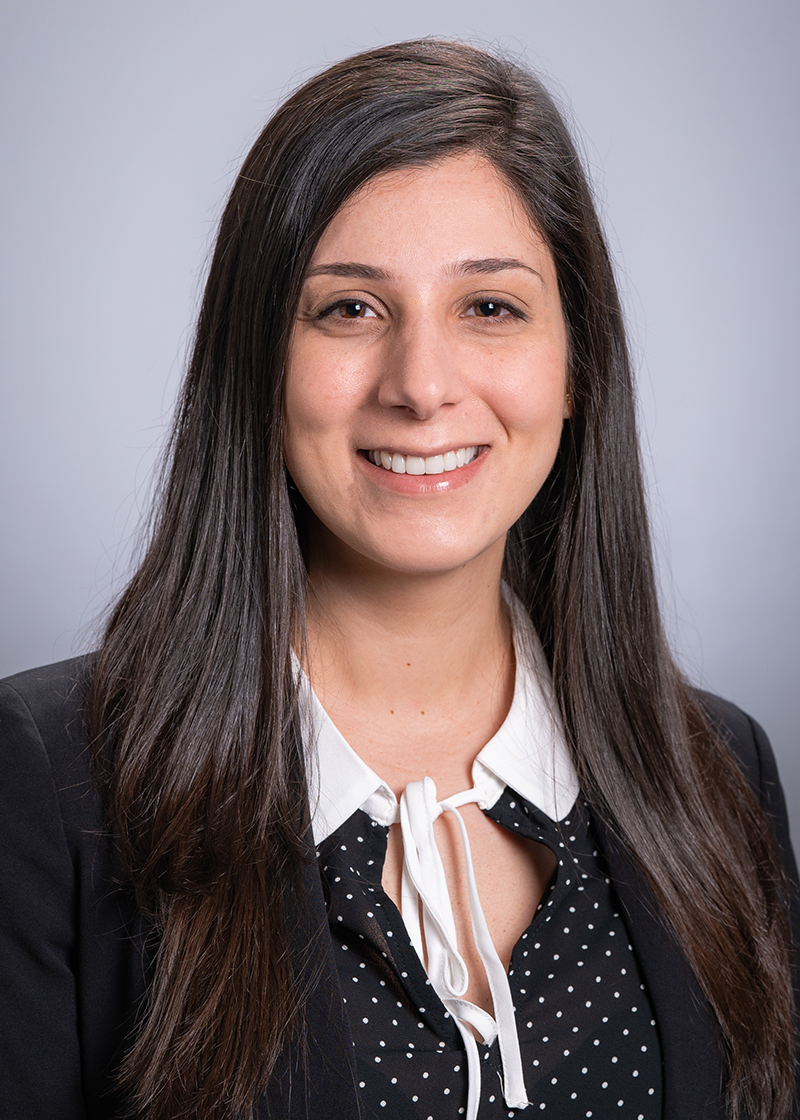What brought you to the UAB School of Public Health?
Both professional and personal factors brought me to the UAB School of Public Health. I had previously completed a postdoctoral fellowship at UAB and remained connected with several faculty members whose work I deeply respected. As I began exploring faculty positions, UAB felt like a natural fit. At the same time, my husband was already working in Alabama, which made the move to Birmingham an easy and meaningful decision for both of us.
What is the broad focus of your research?
My research broadly focuses on the prevention and management of chronic diseases—particularly hypertension and chronic kidney disease. I leverage real-world data and apply implementation science methods to improve chronic disease outcomes.
Where did you receive your training and degrees?
I received my undergraduate degree in biology and my medical degree from the American University of Beirut in Lebanon. I then completed a postdoctoral fellowship in vascular biology and hypertension at UAB. Following that, I earned a PhD in Epidemiology from the University of Minnesota and completed a second postdoctoral fellowship at the Clinical and Translational Research Accelerator at Yale University.
What is the most exciting project you are currently working on?
One of the most exciting projects I’m currently working on is a pilot study evaluating the feasibility, acceptability and effectiveness of a remote blood pressure monitoring and pharmacist-led telehealth intervention. We’re recruiting patients with uncontrolled hypertension from UAB’s Emergency Department Post-Discharge Clinic and tracking blood pressure changes over 12 weeks. We’re nearly finished enrolling our target of 24 patients, and the findings will help inform a larger NIH grant submission—hopefully an R01—within the next year.
What is your favorite self-authored manuscript?
This is a hard question—I don’t think I have a single favorite yet, but I was particularly excited about “Electronic health record alerts for management of heart failure with reduced ejection fraction in hospitalized patients: the PROMPT-AHF trial”. It was a pragmatic, multicenter randomized clinical trial that I led during my postdoc. We tested whether a real-time, tailored electronic health record alert could improve prescription rates of guideline-directed medical therapy (GDMT) at discharge for patients hospitalized with acute heart failure. While the alert didn’t significantly increase overall GDMT prescriptions, it did lead to a higher initiation of MRAs. The study highlighted just how complex it is to change provider behavior through digital nudges alone, and how much room there still is to improve heart failure care in real-world settings.
What professional accomplishment are you most proud of so far in your career?
I’m most proud of the journey—from Lebanon to becoming an Assistant Professor in the U.S.—and the opportunity to train with and continue learning from leaders in the field along the way.
What is the coolest training or program you've been a part of, or your favorite conference you've attended?
My favorite conference is the AHA Hypertension Scientific Sessions. I’ve been attending for the past eight years—starting as a trainee listening to others, and now with the opportunity to moderate sessions, give talks and serve on the planning committee. I love the energy and sense of community at the meeting, and I’ve only missed it once. It’s also a great place to connect with colleagues, network and stay inspired by the latest in hypertension research.
What kind of research would you like to be doing that you haven’t yet had the opportunity to do?
I’d like to focus more on implementation research in chronic disease management, particularly for hypertension and chronic kidney disease. I’m especially interested in leveraging technology to make healthcare more accessible, timely and less burdensome for both providers and patients.
If you had the funding to answer one research questions what would that question?
That’s a tough one, but if I had the funding, I’d focus on building sustainable, equitable systems to improve chronic disease management and ensuring consistent support for research that drives long-term impact.
If you weren’t in academia, what would your career be?
If I weren’t in academia, I think I would have pursued something completely different—maybe every kid’s dream at some point—like becoming an astronaut or working in aerospace engineering.
